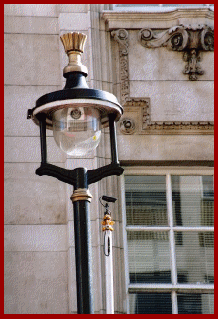| ||||||||||||||||||||||||||||||
Welcome to the | ||||||||||||||||||||||||||||||
 | ||||||||||||||||||||||||||||||
 | ||||||||||||||||||||||||||||||
Time Lapse, VCR's, DVR's, NVR's ... | ||||||||||||||||||||||||||||||
The simple task of being able to make copies of any recorded incidents is obviously vital, although there is one particularly nasty surprise which may catch you unawares. If a serious incident does take place and there is no provision for a full HDD back up to be made available to the investigating officer (or easy removal of the drive), the likeliest outcome is that the hugely expensive and awesomely impressive Digital Video Recorder, will be gracefully slid into a large polythene ‘evidence’ bag, and carted off to the local police station; leaving one very elaborate ‘state of the art’ CCTV system without any means of recording ....and that could be for some months!! It is actually one of many reasons why Doktor Jon would advise caution to anyone buying a very expensive system centric recorder with a built in multiplexer - if one goes, they all go, and it could just as easily be to the service workshop, as the local cop shop. The temptation for most DVR users is to try and cram as long a period as possible onto a hard disc. Some manufacturers are perhaps just as guilty at encouraging this type of approach, with marketing slogans like ‘records for a whole month’ plastered across the leaflets and adverts. In order to lengthen the record period, one of two things, or perhaps even both have to happen. Firstly, the number of images recorded / second must be drastically reduced. Secondly the amount of recorded data must be held to a minimum, and that means cutting the resolution or increasing the data compression; so whilst it is possible to record over a very long period on a standard hard disc (30 days on 320GB for example), the overall picture quality and number of images per second, may not be any better (and probably worse) than a standard VHS recorder. Just as a guide, without the benefit of an efficient compression technique, if you wanted to record 8 cameras based on 1 frame per second, at a picture quality equivalent to S-VHS, for a period of thirty days, you would probably need around 1950GB of Hard Disc space! That's one of the reasons why choosing a DVR with the appropriate compression codec is so important. Digital technology can provide a significant increase in flexibility when designing a CCTV system, but unfortunately, too often, this simply translate as increasing sophistication, without necessarily fulfilling the core objectives any more efficiently. One of the biggest benefits from using an HDD recorder, is the ability to fast search for specific portions of the recorded data anywhere on the disc .... no lengthy tapes to wind through. Unfortunately though, many crimes occur undetected at some point in the recent past, so the fact that perhaps a whole disc may need to be reviewed to identify potential suspects, may be more agreeable for the operator in terms of controllability, but it’s still going to be a laborious process. | ||||||||||||||||||||||||||||||
 | ||||||||||||||||||||||||||||||
IMPORTANT: No material may be reproduced, copied or redistributed from this site, © doktorjon.co.uk 2004 - 2008 Homepage...:...Gateway...:...Technical Gateway....:....Quickfind Index....:....Equipment Directory | ||||||||||||||||||||||||||||||

